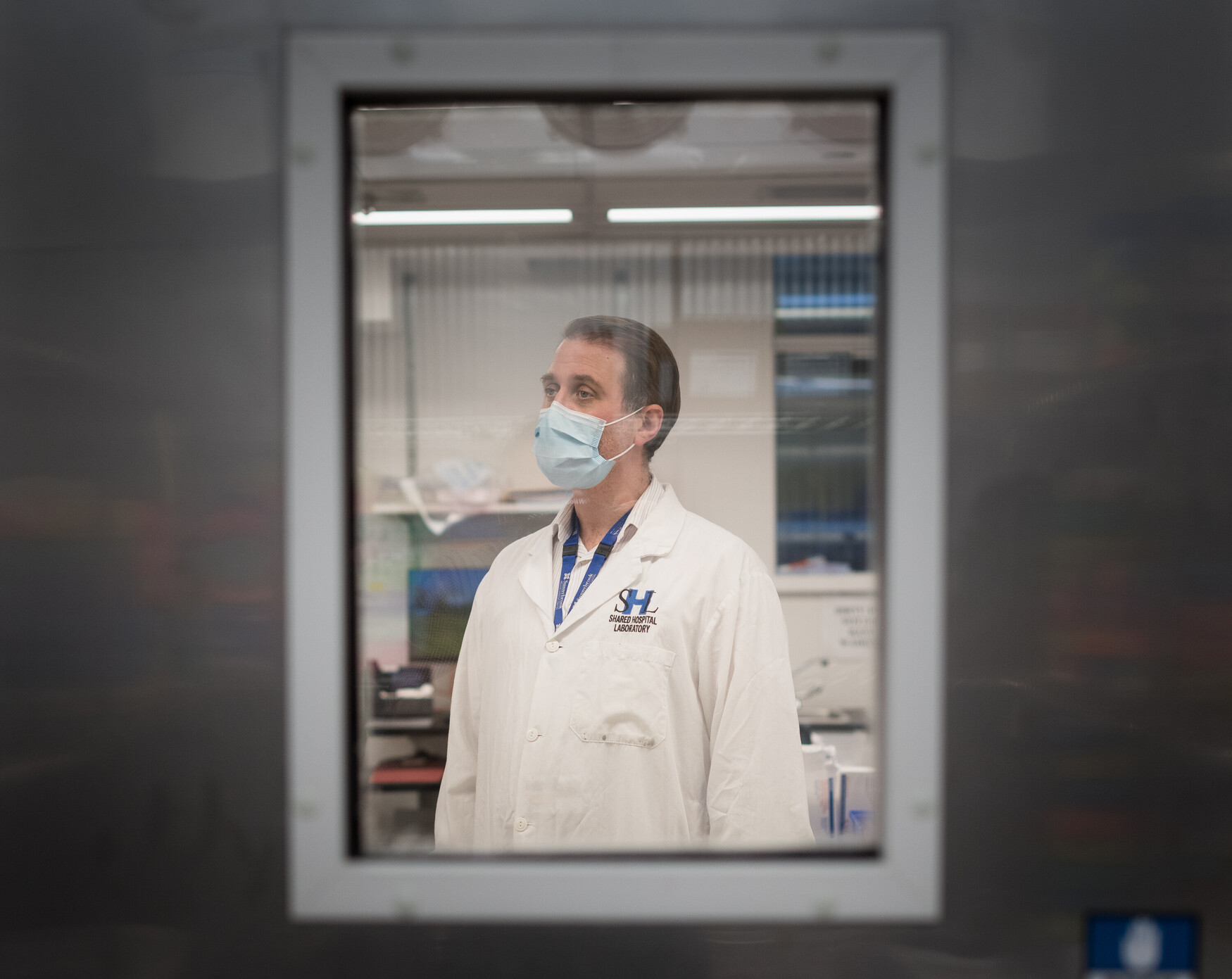
“Mpox is a real concern for us as it is not a disease that's endemic here and it’s emerging in a population that's never seen it before”, says Dr. Rob Kozak.
On July 23, 2022 the World Health Organization (WHO) Director General issued a statement declaring that the global Mpox outbreak represented a public health emergency of international concern. With 1,400 cases across 9 provinces and territories in Canada, the spread of this disease is being monitored closely. Dr. Kozak is working with a group across Toronto hospitals, and with colleagues across Canada, to collect and analyse samples of the Mpox virus to sequence its genome and answer questions about infection and transmission.
A Clinical Microbiologist at Sunnybrook Health Sciences Centre and Assistant Professor in Temerty Medicine’s Department of Laboratory Medicine and Pathobiology (LMP), Kozak has been interested in microbiology since his undergraduate years. He studied tuberculosis for his PhD, then switched from studying bacteria to viruses, focussing initially on Hepatitis C while completing the Clinical Microbiology Program in LMP. He became interested in studying zoonotic viruses like Ebola, Marburg and MERS in level 4 containment facilities, something he admits “most people probably wouldn't consider fun.” He was part of the team who were some of the first in the Canada to isolate the SARS-Cov-2 virus at the start of the COVID-19 pandemic and now he is applying his expertise to Mpox.
Mpox has been an ongoing health burden for many countries in Africa for decades but has essentially not occurred in Canada. Although mortality rates have remained low (none reported in Canada to date), the recent outbreak across Europe and North America still raises much concern. The disease can be painful with severe symptoms and patients must be isolated due to its high levels of contagion.
“From a diagnostic perspective Mpox can present like a number of other diseases, such as syphilis and other more benign infections. If it continues to circulate, it becomes one more thing our healthcare system has to deal with and test for. If we don't eliminate it here it adds to our disease burden and causes more problems in other countries where it can be much more serious due to socioeconomic and other reasons” says Kozac.
As we have seen with Sars-CoV2, one of the biggest problems we face when disease spreads relatively unchecked is its potential for the organism to mutate. It could become resistant to current antivirals or enter vulnerable populations where it can become extremely serious. It is therefore vital that scientists and healthcare workers fully understand and track its evolution.
Working with a group of clinicians, Kozak is providing the microbiology expertise in developing diagnostic assays that help quantify the viral load. “Being able to see how much virus is present can be useful for monitoring clinical outcomes and disease progression, rather than the straightforward ‘yes or no’ to having Mpox available through Public Health at the moment,” he explains.
At the start of the outbreak, only around 50 Mpox genomes had been sequenced. The Kozak lab, in collaboration with colleagues as far as British Columbia, are now working on sequencing the entire Mpox genome with around 200 genomes sequenced to date. “If we sequence the entire genome, as we did with COVID-19, this gives us vital information about the virus. In which part of the world did it originate? Is it starting to resist current antiviral treatments? All questions that are vital to monitor it, but also to answer clinical questions if we, for example, see different responses in patients to treatment,” says Kozak.
Helped with seed funding from the Emerging & Pandemic Infections Consortium at the University of Toronto (EPIC) to biobank clinical samples, scientists like Kozak are now waiting to be able to work on live virus samples. “To answer basic questions like how long someone is infectious for and “to do” antiviral studies, we need live viruses to work with,” explains Kozak, but with Mpox still considered a “security select bio agent” by Public Health Canada, researchers don’t yet have access to live viruses, something the university is working towards.
Although Kozak sees himself as the “old fashioned lab guy”, he is excited to explore possibilities with data experts working with machine learning and Artificial Intelligence (AI). “What was great with COVID was our ability to share the data globally and have many different experts analysing it – something we hope to recreate with other viruses like Mpox. We’re working out the best ways to share all this data we’re generating so everyone can learn and benefit from it.”
Learn more about our clinical microbiology program
Find out more about the current Mpox status on the Government of Canada website
LMP research into Infectious diseases and Immunopathology
To learn more about how the U of T is facilitating medical research through data sharing, learn about the Health Data Nexus